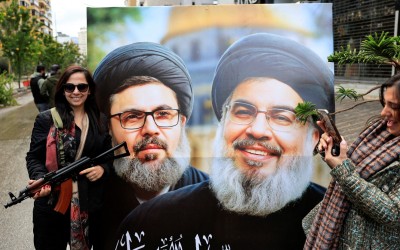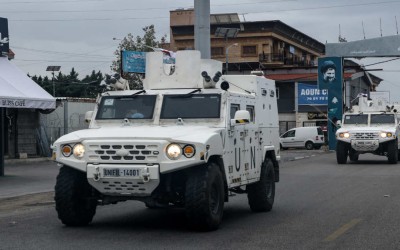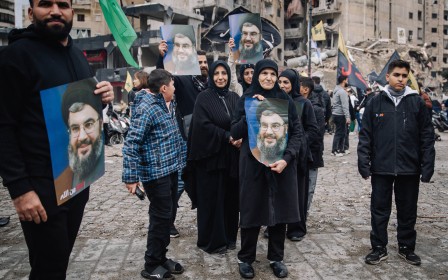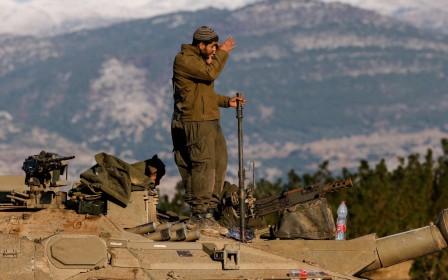What is next for Hezbollah in Lebanon?
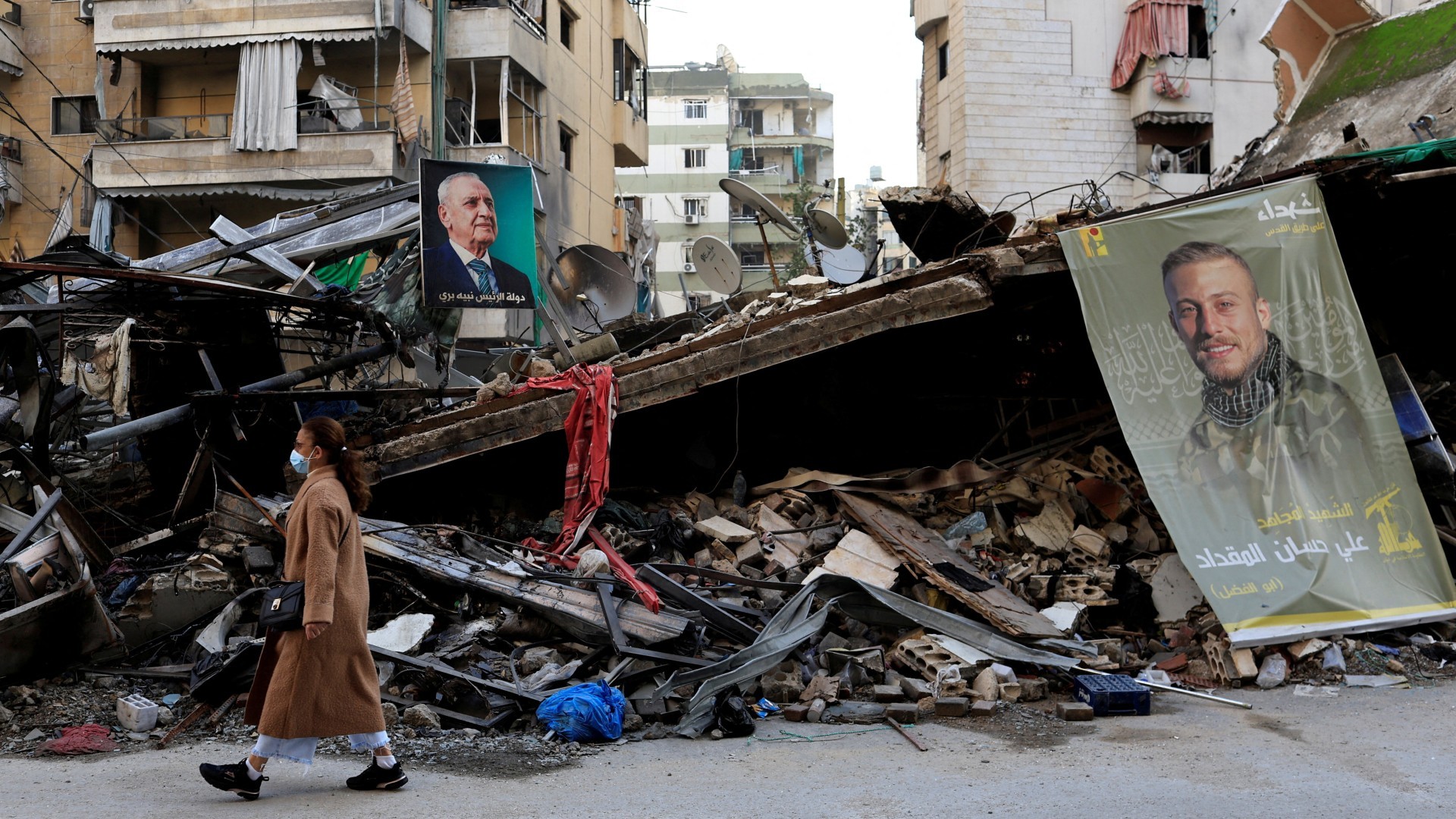
Lebanon is taking a cautious sigh of relief as the ceasefire between Hezbollah and Israel stands on shaky ground.
While fighting may be over, or at least paused, attention now shifts to another challenge facing Lebanon and Hezbollah: internal reckoning.
While Hezbollah’s supporters, along with other segments of the Lebanese population, see the war’s outcome as a victory for the party, others have decried the bloodshed and destruction caused by a conflict they did not back.
“Hezbollah’s claim of victory holds little weight outside its core constituency,” Imad Salamey, a Middle Eastern politics expert at the Lebanese American University, told Middle East Eye.
“The war was not widely popular among the Lebanese people, many of whom are more focused on the devastating economic losses inflicted during the conflict.”
New MEE newsletter: Jerusalem Dispatch
Sign up to get the latest insights and analysis on Israel-Palestine, alongside Turkey Unpacked and other MEE newsletters
Hezbollah opened a limited battlefront with Israel on 8 October 2023 in support of Hamas and Palestinians under attack in the Gaza Strip.
For nearly a year, the conflict was mostly limited to clashes in the border areas between Lebanon and Israel.
In September, however, Israel exploded thousands of pagers used by Hezbollah members before launching a widespread bombing campaign across the country followed by a ground invasion.
More than 3,900 people in Lebanon were killed and over a million displaced.
While people in Lebanon largely acted in solidarity with those displaced and killed by Israel, and stood by their compatriots in the face of Israeli forces, how the conflict has shifted domestic political dynamics may determine Lebanon's fate for years to come.
‘Two polarised camps’
Lebanon's political camps have always been heavily divided, with the issue of Hezbollah and its arms serving as a point of contention for decades.
After this war, Salamey says Hezbollah is “likely concerned about growing opposition within Lebanon, which could create two polarised camps, one supporting Hezbollah and the other pushing for disarmament”.
“To suppress dissent and maintain control, Hezbollah may feel compelled to take domestic actions, including using its influence to neutralise political opponents or deter their activities through various actions,” he added.
In contrast, Qassim Qassir, an analyst close to Hezbollah, told MEE that the group remains “reassured” about its internal political position in Lebanon.
The group is currently reviewing its latest actions and will “define its future vision and is reassured that the results of the battle were in its favour”, according to Qassir.
Hezbollah’s political opponents in Lebanon, who were particularly vocal in their criticism of the movement during the war, remain constrained by “fear of violent repression and their own internal divisions” according to Salamey.
Qassir says these people have so far “failed” to take advantage of the war and its consequences to score political points against Hezbollah.
Difficult recovery
The most significant 21st-century standoffs between Hezbollah and its Lebanese opponents took place in the years following the Syrian army’s withdrawal from Lebanon in 2005.
This period saw string of political assassinations and even deadly clashes across the country.
Both sides may be wary of re-entering such a phase, as Lebanon is currently in a particularly vulnerable state.
According to the World Bank, physical damage and economic costs from the war stand at around $8.5bn along with a GDP contraction of about 6.5 percent.
Adding to the uncertainty and instability is the ceasefire's limit of 60 days, though US President Joe Biden insists it is designed to be permanent.
“The fact that there are many uncertainties only makes the recovery harder at a national level,” said Laila al-Amine of aid group Mercy Corps.
“The sectors that would usually pick up such as tourism, reconstruction investment, will be much slower or might not pick up at all.”
Additionally, while several Arab states expressed interest in supporting Lebanon’s post-war reconstruction, al-Amine says they are being more cautious than they were in 2006, when Hezbollah and Israel fought a month-long war.
State vacuum
Along with internal tensions and a financial and humanitarian crisis, Lebanon has been without a president since Michel Aoun’s term ended in October 2022.
Its government has also been acting in a limited caretaker capacity since the last parliamentary elections in May 2022.
On Thursday, Speaker of Parliament Nabih Berri announced that MPs will convene to try to elect a president in January.
'Hezbollah’s military role will remain as long as there is occupation and aggression, but the performance and tactics may change'
- Qassim Qassir, Lebanon analyst
In a speech made days before the ceasefire announcement, Hezbollah leader Naim Qassem said his group would play its part in helping elect a president and would continue its participation in Lebanese political affairs under the Taif Accord, which ended Lebanon’s civil war in 1990.
“There is now a greater likelihood of electing a president, as Hezbollah and its allies may prioritise securing political cover to encourage Arab and western states to invest in Lebanon’s reconstruction,” Salamey said.
“The war has underscored the need for a more functional political system to attract international aid and rebuild trust with regional and global partners.”
Amine also emphasised the importance of government and international actors being present in the post-war period.
“If there is no one, we know there are political entities who will try to fill this void,” she said, adding that this could further exacerbate Lebanon’s divisions.
As for the security vacuum in the south, which is meant to be covered by the deployment of the Lebanese army, Qassir says Hezbollah will remain a fighting force even if its members retreat to the north of the Litani River, as per the ceasefire agreement.
“Hezbollah’s military role will remain as long as there is occupation and aggression, but the performance and tactics may change,” he said.
“It depends on how the agreement will be implemented and what the enemy will do, but there will be coordination with the Lebanese army.”
Middle East Eye delivers independent and unrivalled coverage and analysis of the Middle East, North Africa and beyond. To learn more about republishing this content and the associated fees, please fill out this form. More about MEE can be found here.


